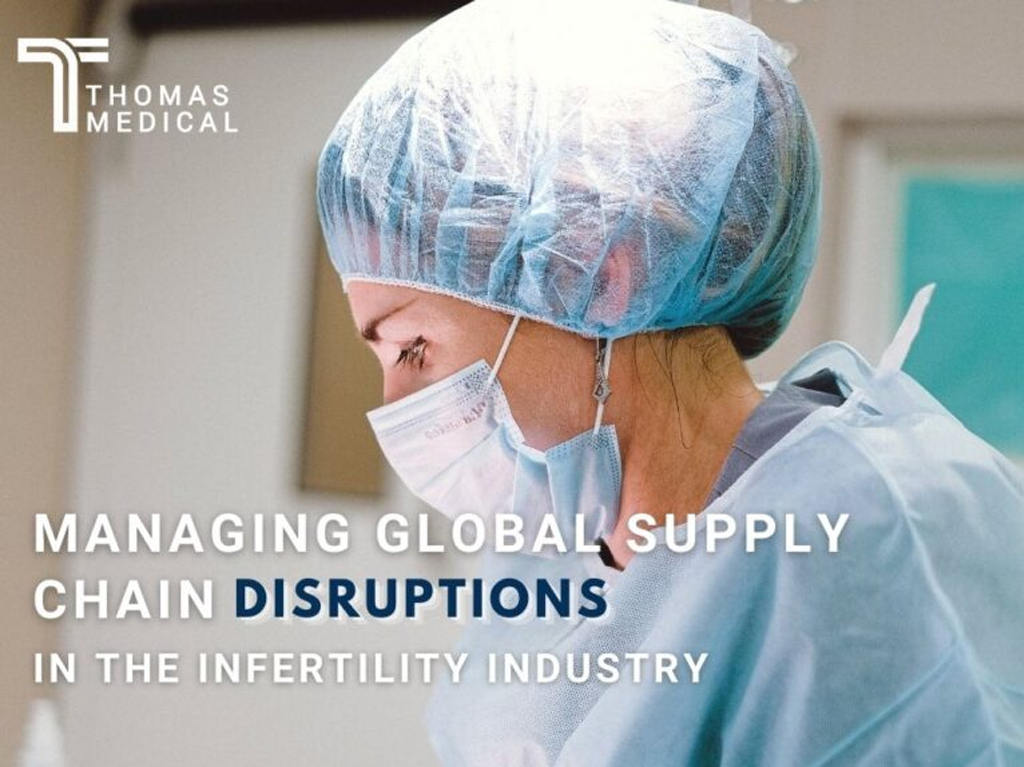Timing is important. It is a mantra that holds true in daily life but perhaps none more important in the infertility industry. The value of timing becomes even more critical when a diagnostic test is involved to assess a treatment pathway for infertility.
Patient care providers are struggling with meeting the challenges that the current global supply chain disruptions have caused due to the Covid-10 pandemic. The effects were slow to dissipate in 2021 but they foreshadowed the issues that many healthcare providers are struggling to resolve in 2022. Supply shortages, empty shelves, and port shutdowns are terms that have become common vernacular. The demand on goods is high with prices rising in accordance.
As many economic forecasters are predicting a continuation of this commotion well into 2023, business leaders are pivoting their practices to combat these issues. Many in supply chain management have found the best approach is to source supplies locally. Undoubtedly, long supply chains can leave businesses vulnerable to further disruptions but resourcing locally can shorten that chain and alleviate this issue. Importantly, understanding which suppliers’ source and sterilize medical equipment locally can be critical to ensuring a successful supply chain in healthcare, which has a heightened sensitivity to supply chain disruptions. Specifically, patients that may have an undiagnosed fertility issue with the hopes of having a child. Timing is crucial for the patient in these circumstances, as well as for the provider.
With a team of medical professionals involved during the diagnostic process, time management is at the forefront. Diagnosis and subsequent treatment hinges on the patient’s menstrual cycle. A successful evaluation of the patient’s uterine cavity using a Hysterosalpingogram (HSG) Catheter, or a Saline Infusion Sonogram (SIS) is dependent on equipment that is actually available. If there is a significant delay with receiving these products, that could result in the delay of an accurate diagnosis and, potentially, a delay in implementing a successful treatment plan for the patient. The intricate collaboration of care needs to be coordinated precisely.
Supply chain leaders in women’s healthcare can control this component by leveraging sources here in the United States, such as Thomas Medical. We manufacture single-use medical devices and accessories for women’s health. Our organization proudly makes infertility products here in the USA which means they are produced, assembled, and sterilized in the United States. Thomas Medical manufactures HSG Catheters which are used to inject water or saline into the uterus during Hysterosalpingography or Sonohysterography to detect tubal patency and uterine pathology.
Now is a critical time for hospitals, IVF clinics, OB GYN practices, and radiology centers to plan for the long-term with a focus on local suppliers. Having flexibility to source local suppliers is key in minimalizing the effects of the current supply chain disruptions. Planning for the unplanned is essential.
Thomas Medical believes in delivering safe devices that are made to the highest standard and fulfilled in a timely manner for providers. This is our promise to our customers, always.
Contact us at (800) 556-0349 to put your plan into action!
Healthcare margins at risk from labor and supply chain challenges (healthexec.com)





